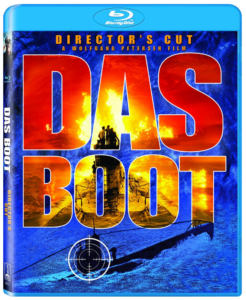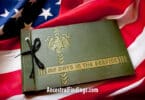So, you’ve decided to investigate your family tree and discover what your relatives did during World War II. It’s a great idea because the war is slowly fading from memory as the last of those who lived and fought through it die off. In another 28 years, it will be a century since the end of the conflict, and there will be just scattered survivors left to tell their stories. These word-of-mouth tales will be no more.
That’s why finding the answers to what you are looking for in other places is increasingly important. There is vast information on the Second World War, and it isn’t difficult to lay your hands on it either. From personal accounts and memoirs to films and historical accounts in literature, you will always find something to get you headed in the right direction, and here are some of the best ways to uncover the facts.
The History of the Conflict
World War II started in Europe on the 1st of September 1939, when the German army invaded Poland by land, sea, and air. Some historians argue that the war began with the Japanese invasion of China in 1937. Others point to Hitler’s aggressive occupation of Austria and Czechoslovakia as a kind of cold war preceding the main event.
Whatever you think, the campaign in Poland was relatively short and ended with the partitioning of the country by the Nazi regime and the Soviet Union.
This prompted declarations of war by Britain, France, and their empires, including Canada, Australia, New Zealand, South Africa, and British India.
Following a prolonged period known as the Phoney War, the German army attacked and invaded France and the Low Countries (they had already reached the point of victory in Norway). Again, the campaign was short and resulted in an overwhelming victory for the Germans.
The following years were punctuated with several German gains, a morale-boosting victory for the RAF in the Battle of Britain, and some action in North Africa against the Italian army.
The war at sea also stepped up with battles between convoys taking vital supplies to Britain and the U-Boats, which threatened them.
The invasion of the Soviet Union in June 1941 meant that Britain was no longer fighting alone, but it seemed like it, too, would fall. However, with winter coming, the German assault stalled and the Soviets rallied.
Then, when the Japanese attacked Pearl Harbor on 7th December 1941, the USA entered the war against them and the Germans.
As the German army began to succumb to the vast reinforcements of the Russians and lost two gigantic battles, first at Stalingrad and then at Kursk, it was just a matter of time before they would be defeated.
In June 1944, the allies landed in France on the beaches of Normandy. From there, they pushed ever eastwards as the Russians pushed towards the west, slowly squeezing the life out of the Germans until the final bloody showdown in Berlin and the death of Hitler.
The war’s end in Europe was quickly followed by the end in the Pacific. US Marines had been taking on the Japanese, island by island in bloody confrontations, ultimately leading to the dropping of two atomic bombs on the cities of Hiroshima and Nagasaki.
Faced with this new weapon and a declaration of war by the Soviet Union, the Japanese surrendered, ending the war.
Popular Culture
There is much misinformation about the war, which persists even to this day. Tales of ‘surrendering’ French and ‘cowardly’ Italians have been prevalent, and the idea of the Nazi soldiers being almost robotic. At the same time, the Americans won the war single-handedly, is also bandied around and passed off as the truth by ill-informed people who have a passing and superficial knowledge of the events.
Films
The first exposure that many of us have to the Second World War (apart from those of us who were lucky enough to have a relative who was there) is watching a film.
This can be a fantastic way to gain some insight and knowledge of the period, which can then be expanded upon through other mediums.
The problem with some films is that they often end up with a Hollywood slant, which skews the reality of what happened and who was responsible for what. The truth, after all, is usually much less interesting, and if you want to sell films, you have to elaborate on the truth sometimes.
There are, of course, some excellent historical films that go into great detail and are realistic at the same time. These tend to come from Germany as they tend not to glorify the war to the same extent as other countries. Das Boot, a German film about a submarine crew, is highly effective, while Downfall is another, depicting the final few days in Hitler’s bunker. It is extraordinarily detailed and as accurate as possible.
A much better way to learn through films is by watching documentaries on the subject. If you have cable TV, there are numerous historical channels that give insights into all sorts of things. They are generally unbiased and offer a fair commentary on the events.
Books
Books, of course, are a great way to learn. There are thousands of historical books, memoirs, and other works which give valuable information about dates, places, actions, and occasionally on individual people who were involved in what happened.
My personal favorites are Anthony Beevor, Max Hastings, and Richard Overy, who have between them written numerous books which get into the fine details of the battles and how they were fought.
The attention to detail within these books is amazing and provides the reader with snippets which can lead to a much greater understanding.
Of course, nowadays, we also have the internet, which offers us an endless stream of information to read and follow. Care should be given to this medium, however.
I have often read things that are just patently not true by people who think they have knowledge of the subject but do not. Always double-check anything you read with a reliable source before passing it off as fact or wasting your time on a search that will lead to nothing.
How to Find out More
For the amateur genealogist, there are some amazing ways to discover what your relatives did in the war, most of which are right at your fingertips.
Forces War Records is an incredible resource where you can search for someone under their name or unit. You can also find hospital records, maps, and historical documents to assist with your search.
There is also a forum where you can speak to like-minded people, a gallery for images to be shared, and a magazine with some great features and information to help you get started.
This site has a cost, but it isn’t prohibitive. A monthly contract, which rolls over every month, costs just £8.95; you can opt for the yearly subscription and pay a one-off fee of £48.95, saving yourself a whopping £58.85 over a year.
For more information, you can visit their website. They also have records on other conflicts, including WWI, the Boer War, Crimean War, and the Napoleonic Wars.
The Commonwealth War Graves Commission is an organization that was set up in 1917 and is dedicated to the memory of 1.7 million who perished during both World Wars. It looks after a staggering 23,000 individual sites in 154 countries worldwide and is the last word when it comes to finding the grave of a loved one long after they died.
Their website is incredibly detailed and user-friendly, allowing you to look for someone by name, country, regiment, date of death, or a dozen other methods, ensuring that you should always be able to find who you are searching for.
Their records are in-depth, and my advice would be to check with them first if the person you are searching for was killed in action or died as a result of an accident while on active service.
They have links to other sites and other resources that can prove invaluable. And, if you still can’t find the person you are looking for, you can get in touch with them and see if they can help.
The beauty of the CWCG is that it is entirely free to use, and with no monthly payment to worry about you can dip in and out as much as you like. By exploring the site, you could uncover something completely unexpected, but remember that there are hundreds of thousands of casualties and simply happening on one that means something to you is unlikely.
Individual Regiments can also be a mine of information. If you know the regiment your relative served in, it is a simple case of contacting them and asking for the information. Most will have a department, or at least someone, who will be designated to this task, and they are usually happy to assist with inquiries from members of the public who show a keen interest in their history.
Most regiments have a Regimental Museum, which often holds vast information about those who served in them and the actions they were involved in. Many of these will hold medals, citations, and other records in storage facilities that may not be immediately visible, but a simple question can often yield results that could reveal the missing piece to your jigsaw or uncover something spectacular you had no knowledge of.
Local Museums also sometimes hold small things which have been handed in by relatives who don’t know what else to do with them. A visit often turns out to be very productive, or you could email a question to them if there are a few in your local area and you have difficulty visiting them all. This way, you don’t have a wasted journey if they have nothing that is relevant.
People are often the best sources of information. As mentioned before, the clock is ticking for this line of inquiry, but it hasn’t completely run out yet. If you have a relative, I will encourage you to get them to open up about what they did. Some have written small memoirs which could be vastly expanded upon, and many don’t think they did very much to be proud of.
A visit to a local nursing home, or an email to them in some cases, may be all that is needed to discover they have someone who flew a Spitfire in the Battle of Britain or was rescued from the beaches at Dunkirk. Old people have great memories when it comes to the distant past, and very often, they love nothing more than a cup of tea and a good chat about the old days.
Local Colleges sometimes do courses on things like this. It is worth engaging with them to see what is on offer. You may have to pay for this; however, it may well prove to be worth the expense.
Battlefield Tours is a company that specializes in taking people to the places where the great battles of WWI and WWII took place. They are mainly in Western Europe, but a few go further afield and are a great source of interest and information as they are led by people with a great knowledge of the events.
In addition to battlefields, they also visit cemeteries and memorials to the fallen and the trips are well-planned. You can choose which one to take as well, meaning that you can specifically target something you know is of interest rather than spending a week walking through France and getting nowhere.
You can find Battlefield Tours at http://www.battlefieldtours.co.uk but remember that this is a business, and they charge for the pleasure. You could effectively make the same trip and learn a fair bit, although you wouldn’t necessarily get the same historical input.
There are many ways to discover what a relative did during WWII. My advice is to either gain a good understanding of the conflict first and then start your search, or if you know who your relative was and where they served at least get a thorough grounding in that specific theatre.
This will help you to get a feel for the time period and will make searching that bit more enjoyable. And when you find that nugget of information, you’ll be elated that you can then link your relative to some of history’s most momentous occasions.







